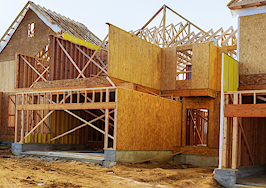The Minneapolis City Council on Friday passed the city’s comprehensive economic and housing plan with a 12-1 vote, becoming the first city to eliminate single-family zoning.
The plan goes into effect Jan. 1, 2020, ending a three-year long process that included more than 100 community meetings and multiple preliminary votes, the last of which was December 2018.
“Minneapolis is leading the nation in the fight to create affordable housing and pushing back on intentional segregation in neighborhoods across our city,” Mayor Jacob Frey said in a prepared statement.
“Our landmark 2040 Comprehensive Plan helps advance those goals by tackling our city’s long history of exclusionary zoning while laying the groundwork for stronger transit, climate, and inclusive development policies.”
“I commend my colleagues on the city council for approving the plan and look forward to continuing our good work together,” he added.
Dubbed Minneapolis 2040, the plan includes an increase in housing density near transit stops and the elimination of off-street minimum parking requirements to make room for bigger multi-family housing units. The project also included a $25 million subsidized housing fund and a new provision that 10 percent of apartment units must be reserved for moderate-income households.
However, Minneapolis 2040’s zoning plan has gained the most attention, as cities and states across the country are struggling to create viable, affordable housing solutions.
The plan upzones lots that previously only allowed single-family housing. Now, developers can build triplexes on that land, effectively tripling Minneapolis’ available housing inventory.
Housing experts have often said more inventory is the key to driving down housing costs, and that strict zoning laws that favor single-family homes are the primary barrier.
“Houston and Charlotte and Atlanta show that if you sprawl enough you can reduce the average, metro-wide price of a home,” Michael Andersen, a senior researcher at non-profit sustainability research organization the Sightline Institute told Inman in a previous article.
“But you have other costs like all the freeways, everybody’s gas costs, traffic. It becomes less efficient as more people use it, unlike public transit. You have the social cost of people not seeing each other and not spending time with their families and friends.”
“The better solution is the one cities around the world have pursued until the advent of modern zoning, which is to grow upward,” he added.
As Minneapolis’ median home sales and rental prices reach new peaks, the city’s mayor says he hopes the plan will improve affordability.
“I believe strongly that housing is a right,” Mayor Jacob Frey told CityLab after December 2018’s preliminary vote. “I believe that everyone should have a safe place to go home to at the end of the night, to rest their heads on a pillow and rejuvenate for the next day.”
”Clearly that right is not afforded to everyone,” Frey added while noting Minneapolis 2040 will address that problem. ”I believe that affordable housing should be in every neighborhood. There’s a right to live in a great city.”
The passage of Minneapolis 2040 is a massive win for housing advocates, but it seems the battle has just begun. Frey said he recognizes Minneapolis 2040’s housing policies are only a first step.
“The comprehensive plan is one tool in a toolkit,” Frey further explained in his CityLab interview. “I place affordable housing into two overarching segments. The first being subsidy.”
Frey said Minneapolis 2040 provides the subsidies needed to bridge the housing gap for middle-income families, but it doesn’t offer enough help for those experiencing homelessness.
“It’s going to deeply affordable housing—30 percent of area median income levels—so that people who are experiencing homelessness have that next rung on the ladder to pull themselves back,” he said. “Right now, that rung is sadly missing.”
Furthermore, Frey and Minneapolis 2040 supporters will have a tough time winning over residents on the city’s southwest side — white, wealthy residents who have consistently protested rezoning plans.
“Critics called the elimination of single-family zoning a gift to developers, who would change the “character” of neighborhoods by overbuilding,” noted The Atlantic. “Especially in wealthy Southwest Minneapolis, red signs bearing the slogan ‘don’t bulldoze our neighborhood’ proliferated — even though no one was proposing to bulldoze anything.”
Council member Linea Palmisano, who represents Southwest Minneapolis, has struck down the plan each time, while expressing skepticism about its proposed effectiveness.
“I don’t think that this plan is going to be the savior of the future of Minneapolis,” said Palmisano, who on Friday once again voted against the bill. “And I don’t think it’s going to be our demise.”
Minneapolis isn’t the only place reconsidering zoning laws — California and Oregon have issued state-wide single—family zoning reforms, and cities such as Austin, Washington D.C. and Sacramento are creating plans of their own.












